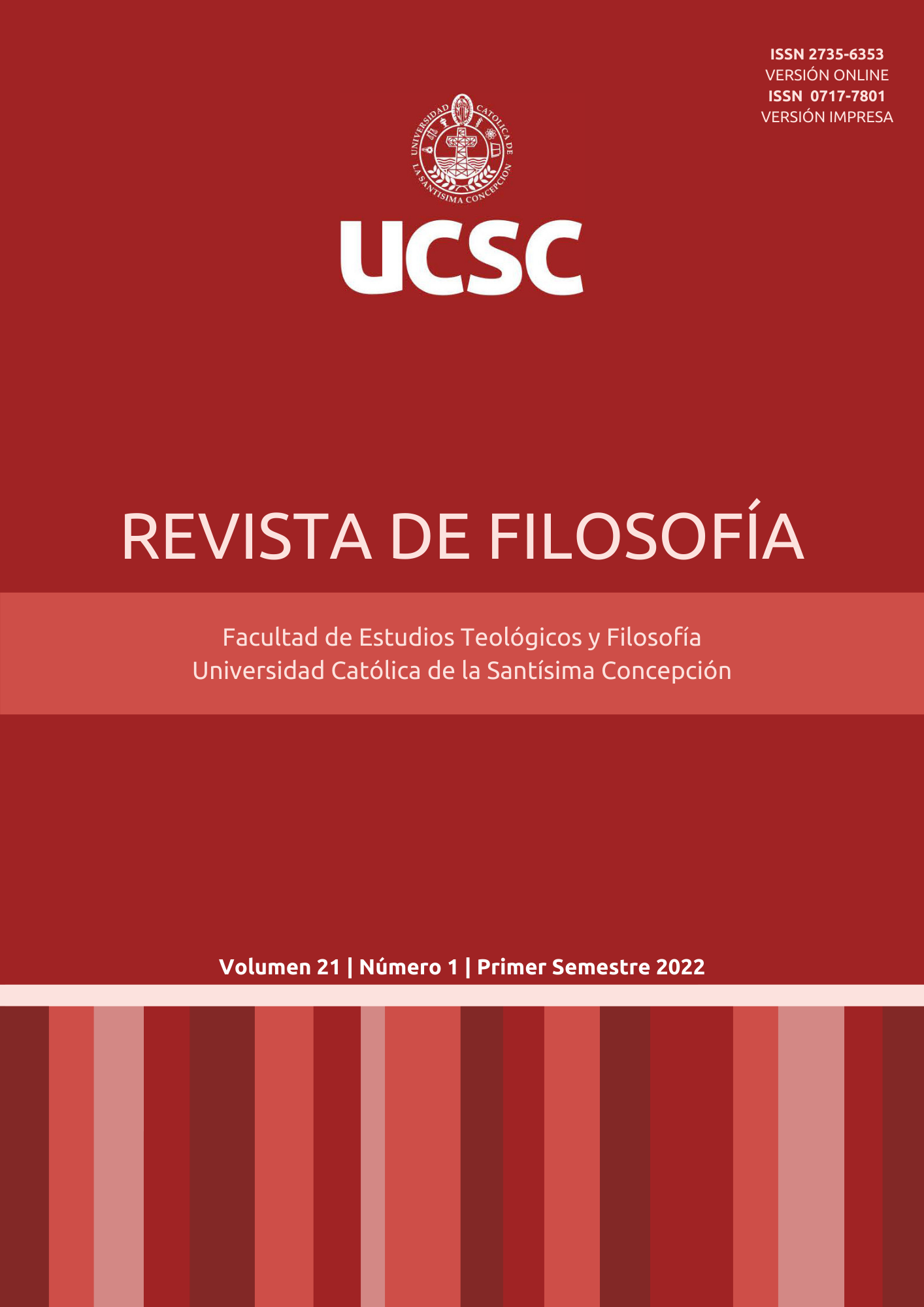El Apocalipsis del Leviatán: Escatología en el proyecto político de Thomas Hobbes
Contenu principal de l'article
Résumé
El objetivo principal de esta presentación es determinar el papel que jugó la escatología dentro del pensamiento político de Thomas Hobbes. Para determinar este rol, es fundamental dar cuenta del marco bibliográfico utilizado para esta presentación. Además, se analizará la relación de los conceptos de "muerte del Estado", "historia" y "contrato" y las principales consecuencias de Hobbes en el panorama político postapocalíptico. Finalmente, se realizará una interpretación del uso que hace Hobbes de la escatología respondiendo a la siguiente pregunta: ¿Es la escatología sólo un recurso retórico, o es esencial para toda la estructura de su sistema político?
Details de l'article
Rubrique

Ce travail est disponible sous licence Creative Commons Attribution - Pas d’Utilisation Commerciale 4.0 International.
Le UCSC Journal of Philosophy est en libre accès et ne facture pas sa publication. En outre, il réglemente sa politique de droits d'auteur et l'accès à ses archives conformément à la licence publique internationale Attribution-NonCommercial 4.0 (CC BY-NC 4.0). Il est donc permis de partager (reproduire et distribuer le matériel sur tout support ou dans tout format) et d'adapter (modifier, transformer et créer à partir du matériel) à condition que le crédit approprié soit donné, y compris la citation avec les données correspondantes. En outre, il n'est pas permis d'utiliser le matériel à des fins lucratives.
Comment citer
Références
Ball, B. W. (1975). Great Expectation, Eschatological thought in English Protestantism to 1660. E.J. Brill.
Borot, L. (2006). “History in Hobbes’s Thought”, Cambridge Companion to Hobbes, Tom Sorell edition. Cambridge University.
Capp, B. (1972), “The Millennium and Eschatology in England”, Past & Present 57, 156-162.
Capp, B. (2011), “Godly Rule and English Millenarianism”, The Intellectual Revolution of the Seventeenth Century, edited by Charles Webster, UK., Ed. Routledge.
Clark, A. (1898). Aubrey’s Brief Lives. The Clarendon.
Lametti, J. (2012), Historical Dictionary of Hobbes’s Philosophy. The Scarecrow Press.
Martinich, A.P. (1999), Hobbes, A Biography. Cambridge University.
McClure, C. (2011). Hell and Anxiety in Hobbes’s Leviathan, The Review of Politics, 73, 1-27.
Miller Lewis, J. (1976), Hobbes and the Blackloists: A Study in the Eschatology of the English Revolution, Dissertation, PhD Thesis on Philosophy, Harvard University, 1976. Harvard University Offsite Storage. http://id.lib.harvard.edu/alma/990038747600203941/catalog
Hobbes, T. (1994). The Correspondence. Clarendon.
Hobbes, T. (2012) Leviathan. Clarendon.
Hobbes, T. (2017), The Elements of Law Natural and Politic. Cambridge.
Pocock, J.G.A. (1989), Politics, Language, and Time: Essays on Political Thought and History. University of Chicago.
Schumann, K. (2000). Hobbes’s concept of history, Hobbes and History. Routledge.
Schwartz, J. (1985). “Hobbes & Two Kingdoms of God”, Polity 18 (1) (1985), 7-24.
Simendić, M. (2016). “Nature, Civility and Eschatology: Thomas Hobbes’s Progress in Three Acts”, FILOZOFIJA I DRUŠTVO XXVII (4) (2016): 894-915.
Springborg, P. (1975), “Leviathan and the Problem of Ecclesiastical Authority”, Political Theory 3. 289-303.
Tuck, R. (1992). The Civil Religion of Thomas Hobbes, Political Discourse in Early Modern Britain, Cambridge University Press, pp. 120-138.




